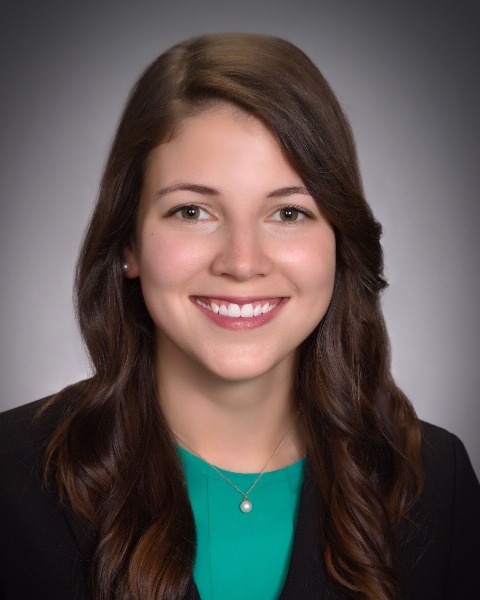Breastfeeding/Human Milk
Category: Abstract Submission
Breastfeeding/Human Milk I
421 - Provider practice and perspectives on breastfeeding while living with HIV in the United States
Sunday, April 24, 2022
3:30 PM - 6:00 PM US MT
Poster Number: 421
Publication Number: 421.301
Publication Number: 421.301
Allison M. Lai, UCSF Benioff Children's Hospital San Francisco, LAFAYETTE, CA, United States; Elisabeth S. Young, UCSF Benioff Children's Hospital San Francisco, San Francisco, CA, United States; Gabriela Chateau, UCSF Benioff Children's Hospital San Francisco, San Francisco, CA, United States; Hannah Kohrman, UCSF Benioff Children's Hospital San Francisco, San Francisco, CA, United States; Lealah Pollock, University of California, San Francisco, School of Medicine, San Francisco, CA, United States; Deborah Cohan, UCSF, Berkeley, CA, United States; Monica Hahn, University of California, San Francisco, School of Medicine, San Francisco, CA, United States; Judy Levison, Baylor College of Medicine, Houston, TX, United States; Theodore Ruel, University of California, San Francisco, School of Medicine, San Francisco, CA, United States

Allison M. Lai, MD, MPH
Pediatric Resident Physician
UCSF Benioff Children's Hospital San Francisco
LAFAYETTE, California, United States
Presenting Author(s)
Background: For people living with HIV (PLHIV) in the U.S., guidelines are to strictly avoid breastfeeding with HIV (BFHIV) to eliminate risk of HIV transmission. However, the World Health Organization recommends exclusive breastfeeding for infants of PLHIV on antiretroviral therapy (ART). Emerging data additionally suggests the risk of transmission is very low in optimal scenarios, with sustained viral suppression during pregnancy and postpartum and patient-centered care. In counseling parents, providers in the U.S. must balance the benefits of maternal and infant breastfeeding with the risk of HIV transmission, while respecting the autonomy of parents. It is unclear how providers in the U.S. currently counsel parents in this landscape.
Objective: To describe the practices, comfort, and challenges of providers in the U.S. in counseling parents around BFHIV.
Design/Methods: We developed an anonymous mixed-methods survey with input from community advisors and distributed it via professional email listservs. Inclusion criteria were U.S. based clinical practice and 80% survey completion. Data analysis utilized non-parametric hypothesis testing and ordinal regression.
Results: Of 84 U.S. institutions identified by respondents, 10% had an institutional protocol for BFHIV, which did not differ by region or specialty (Table 1). Of 100 included respondents, 86% had counseled PLHIV on infant feeding choices, and 56% had counseled PLHIV on the potential to breastfeed. The most identified sources guiding BFHIV management were discussions with colleagues and literature review. There was a difference in provider comfort in optimal scenarios versus outside of optimal scenarios (z=6.1, p< 0.001). Provider comfort with clinical vignettes of optimal scenarios was higher for respondents who have an institutional protocol to support BFHIV (Table 2). Comfort outside an optimal scenario was increased by personal or institutional BFHIV experience. The most strongly perceived barriers to supporting BFHIV were detectable viral load, substance use, mental illness, low health literacy, and language discordance (Fig. 1).Conclusion(s): Our results suggest that providers in the U.S. struggle to counsel and support parents who seek to BFHIV, underscoring the need for research and guidelines to ground counseling about infant feeding decisions in patient-centered care, risk reduction, and reproductive health justice.
CV_Allison Lai_PAS.pdf
Variables Associated with Provider Comfort with BFHIV in Defined ScenariosTable2.jpeg
Objective: To describe the practices, comfort, and challenges of providers in the U.S. in counseling parents around BFHIV.
Design/Methods: We developed an anonymous mixed-methods survey with input from community advisors and distributed it via professional email listservs. Inclusion criteria were U.S. based clinical practice and 80% survey completion. Data analysis utilized non-parametric hypothesis testing and ordinal regression.
Results: Of 84 U.S. institutions identified by respondents, 10% had an institutional protocol for BFHIV, which did not differ by region or specialty (Table 1). Of 100 included respondents, 86% had counseled PLHIV on infant feeding choices, and 56% had counseled PLHIV on the potential to breastfeed. The most identified sources guiding BFHIV management were discussions with colleagues and literature review. There was a difference in provider comfort in optimal scenarios versus outside of optimal scenarios (z=6.1, p< 0.001). Provider comfort with clinical vignettes of optimal scenarios was higher for respondents who have an institutional protocol to support BFHIV (Table 2). Comfort outside an optimal scenario was increased by personal or institutional BFHIV experience. The most strongly perceived barriers to supporting BFHIV were detectable viral load, substance use, mental illness, low health literacy, and language discordance (Fig. 1).Conclusion(s): Our results suggest that providers in the U.S. struggle to counsel and support parents who seek to BFHIV, underscoring the need for research and guidelines to ground counseling about infant feeding decisions in patient-centered care, risk reduction, and reproductive health justice.
CV_Allison Lai_PAS.pdf
Variables Associated with Provider Comfort with BFHIV in Defined ScenariosTable2.jpeg
